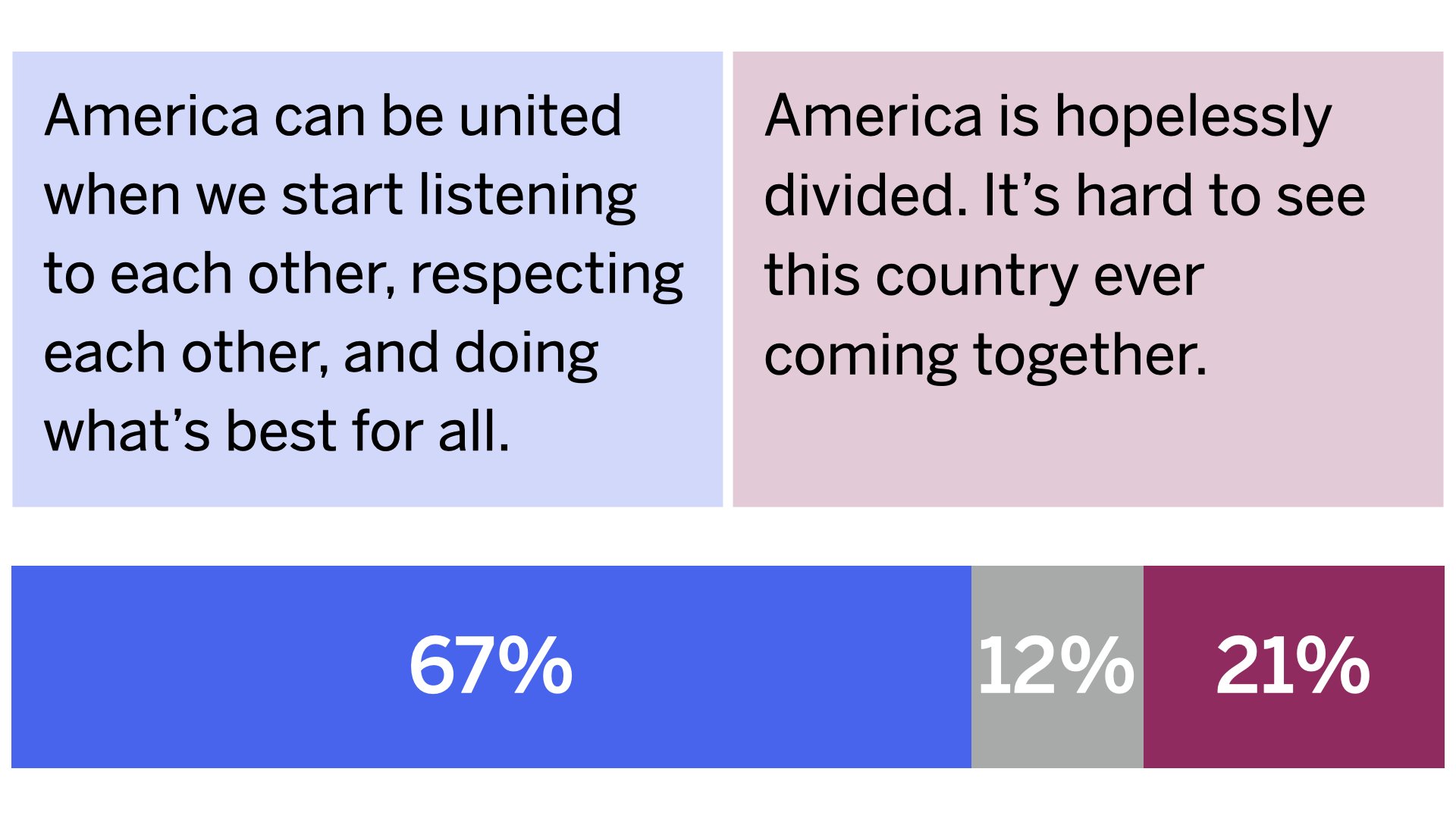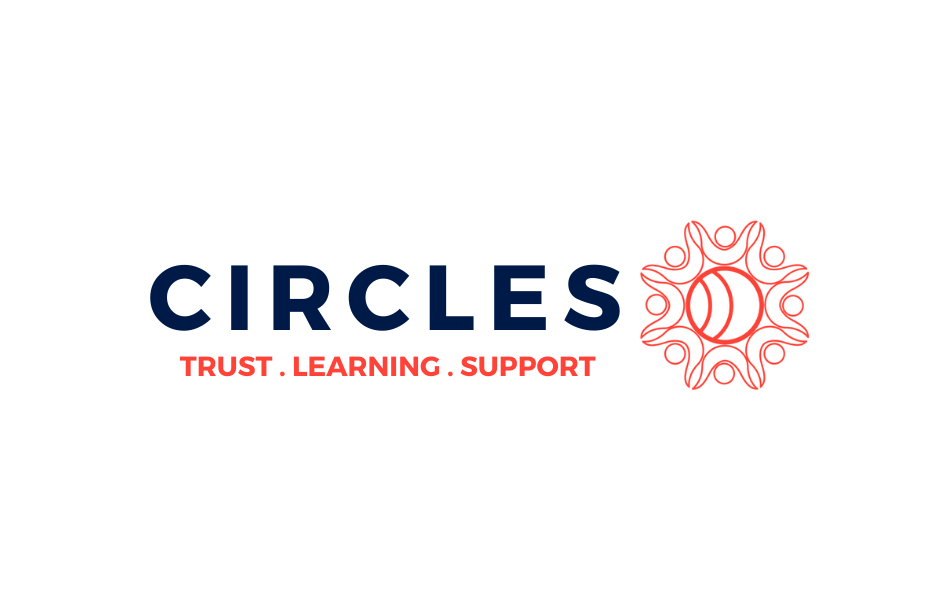How to Disrupt Toxic Politics and Bridge Political Divides
Doug Hattaway
President
Hattaway Communications
@HattawayComm
Last week’s attack on Congress dialed up the urgency for leaders in politics, philanthropy, and advocacy to address toxic political polarization in the United States.
The polarization of our politics has brought democratic institutions to a standstill and halted progress on urgent policy change for some time. It will lead to more political violence, unless more direct action is taken to disrupt the poisonous dynamics of hyper-partisan politics.
What makes Donald Trumps’ brand of politics possible?
A steady stream of disinformation drove many of the people who descended on Washington in response to Donald Trump’s call to arms. And disinformation is driving millions more to doubt the results of a fair election.
The psychology of “confirmation bias” says we won’t defeat disinformation by simply sharing factual information, because people tend to discount information that contradicts our worldview. To combat disinformation, we need to understand what makes Trump’s brand of politics possible in the first place. One underlying cause is the toxic level of polarization in our political culture, which erodes people’s trust in each other and in our democratic institutions.
Last summer, our team at Hattaway Communications helped the brain and behavioral scientists at Beyond Conflict raise the alarm about toxic political polarization in the U.S. They were concerned by the increasing number of Democrats and Republicans who view each other through a lens of “opposing identities,” and not as fellow citizens.
We released a report in June 2020 about the psychology of political polarization: America’s Divided Mind: Understanding the Psychology that Drives Us Apart. The report explained that much of the extreme polarization bedeviling U.S. politics has been fueled by people’s misperceptions about each other.
“Americans incorrectly believe that members of the other party dehumanize, dislike, and disagree with them” more than they actually do, the scientists said. Their study found that both Democrats and Republicans overestimate how extreme the other side’s position is on hot-button issues such as immigration and gun safety. These misperceptions create fear and distrust.
Social science and strategic communication offer solutions
These insights point to potential solutions for leaders in politics, philanthropy, and other fields.
Influencer Education. Political leaders, pundits, journalists, and social media influencers shape public perceptions of our politics. These influencers can learn to identify the kind of rhetoric that leads to toxic polarization and violence, and help turn the tables on extremists and dividers. Beyond Conflict’s research and many other studies show that large majorities of Americans agree on major policy issues, but you’d never know it from political debates and news coverage that focus on the conflict rather than the consensus. Politicians and journalists can learn to open people’s eyes to the common ground on so-called “hot button” issues.
Real-time Interventions. Another approach is to disrupt polarization when and where it happens, by making people aware of divide-and-conquer tactics used to manipulate their emotions. Psychological research shows that awareness of negative emotions and their triggers is the first step to taking control and countering emotional manipulation. This will take real-time intervention to call out dehumanizing rhetoric. For example, political watchdogs can monitor debates and issue “red flag” alerts to call the public’s attention to political players using toxic rhetoric meant to manipulate them.
Unifying Narratives. Disinformation and divisive political narratives are powerful because they offer people ways to understand the world. We need to drive new narratives that offer a new lens through which to understand what’s happening in America today.
One powerful narrative comes from the work of Ian Haney Lopez, author of “Dog Whistle Politics” and “Merge Left,” who worked with other experts to produce powerful research about the divisive brand of politics that creates distrust and undermines faith in democratic government. He points out that political actors do this in order to hold onto power and hoard wealth, by making it extremely difficult to advance positive policy and social change.
Fortunately, two out of three “persuadable” people responded to a narrative that describes divide-and-conquer politics as a tactic to maintain the unfair status quo: “(T)oday, certain politicians and their greedy lobbyists hurt everyone by handing kickbacks to the rich, defunding our schools, and threatening our seniors with cuts to Medicare and Social Security. Then they turn around and point the finger for our hard times at poor families, Black people, and new immigrants.”
The solution is to “join together with people from all walks of life to fight for our future, just like we won better wages, safer workplaces, and civil rights in our past.” This type of narrative shows why unity and solidarity among people from different backgrounds and beliefs is in everyone’s best interest. This and other research highlights the importance of storytelling about successful social movements and advocacy campaigns, which shows people what’s possible and motivates them to respond to calls to action.
The Othering & Belonging Institute at the University of California, Berkeley shows leaders how to transcend social divides through “bridging” narratives that highlight our common humanity and counter “breaking” narratives that divide people into camps of “us and them.”
Solutions Storytelling. News and social media bombard us with stories of bad political actors. This can create the impression that their brand of extreme politics is the norm. To counter this, you can lift up the stories of responsible politicians, political influencers, community leaders, and everyday people who value truth, cooperation, and principled compromise. Creating opportunities for people to come together makes this possible, as discussed below.
Community Conversations. Our most recent American Aspirations survey found further cause for hope. During the home stretch of the 2020 election, we asked more than 2,000 U.S. adults which of these statements they agreed with more:
As you can see, 67% of respondents agreed that Americans can come together. Elected officials and other political and community leaders play a key role in showing the way forward. Social psychology and political science research show that most people “follow and crowd” and “follow the leader.” We take cues about what to think and how to act about complex or controversial topics from people we relate to and respect.
“Listening” and “respect” are big ideas here. In our American Aspirations research, “respecting people who are different from me” was a top aspiration for 6 out of 10 people. Focus group conversations found that many people felt unheard and disrespected in today’s political discourse, which is often dominated by partisan voices that get the most attention on news and social media.
Bringing people together across political and ideological divides begins with listening to their aspirations and concerns. You can often find common ground, which allows you to explore ways to work together in common purpose. Bringing people together to achieve specific goals that benefit all of them is a powerful way to overcome political polarization, and to marginalize the opportunists and extremists who drive us apart.
You can convene conversations and projects that transcend political divides in local communities, among virtual communities online, and among political leaders and influencers in state capitals and Washington, D.C. To start, you need to join forces with a few leaders who are willing to step forward and reach across the divides. One creative approach is Recipe for Unity, which “uses food as a catalyst for conversation” by bringing people from different backgrounds together over meals that foster “compassion, empathy, and civil discourse.”
If you’d like to explore ways to disrupt disinformation, toxic polarization, and negative narratives that poison our politics, please reach out to us at info@hattaway.com.




